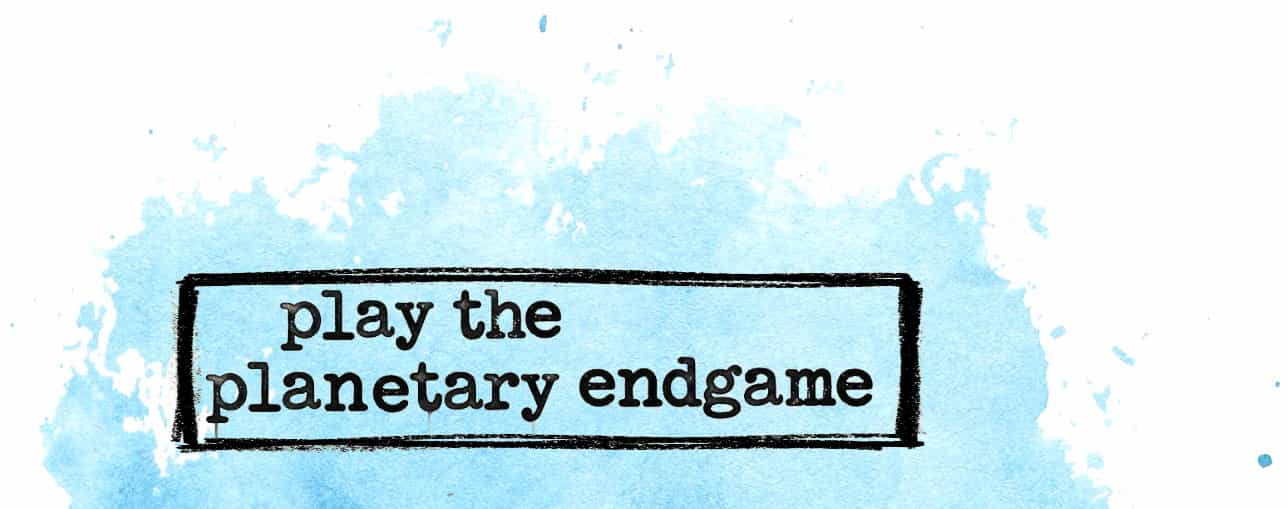The Unofficial History of America

In high school the cool kids smoked. So I started smoking too. And I continued to smoke in university. I just changed brands. Gaulois were too pretentious; I went for British brands like Peter Stuyvesant, with its pure white pack.
Then I started to hear murmurings: cigarettes cause lung cancer.
It was still just a rumor — at least that’s how the industry spun it. “The link hasn’t been proven,” said Philip Morris. PM had marshaled a team of corporate lawyers and PR flacks — not to mention publicly skeptical doctors on their payroll. The evidence just isn’t there, they said. The average smoker’s chances of getting lung cancer from cigarettes is roughly the chance of being struck by lightning.
So I kept puffing.
But I tried to quit, again and again. Problem was, I couldn’t edit a film without smoking. You can imagine it: you’re immersed in the flow, the rational part of your brain is in park, the wild reactive part firing on instinct, and your hand instinctively reaches for a dart. For me back then smoking was woven into the ritual of doing creative work on a deadline.
The magic of tobacco is that it’s both a stimulant and a relaxant. The smoke cloud itself is hypnotic.
One morning, after a lot of boozing and chain-smoking through many nights of editing, I woke up feeling like shit. And I stopped smoking. Again.
But this time I stayed clean. One, two, three days. On day four I woke up feeling . . . amazing. Clear skies.
Not long after, I ran into one of my mother’s neighbors. He looked awful. I learned he was dying of lung cancer. He had only a few months to live. I looked in his eyes and saw that he had given up. I’d gotten lucky; many hadn’t.
It dawned on me that Philip Morris did this. They knew they were killing people and they covered it up. They built their empire on a business plan to sell toxic addictive products to people who didn’t know any better. They were literally getting away with murder and had been for decades.
That’s the moment I started to hate corporations.
“Hate” may be the wrong word. What do you say about someone who betrays your trust? It sounds insane now, but back then people actually did trust corporations. You took it for granted that they were acting in the public interest. They were synonymous with progress, and faith in them seemed as sensible as faith in anything else.
The more that emerged about Philip Morris’s duplicity, the more I could feel the red mist of rage clouding my vision. Those lying bastards. Just so diabolically calculating. Hook the customer early and squeeze a lifetime’s worth of profits out of them — and when regulators close in, you shift your focus to the developing world where the rules are looser and you target those kids.
I thought: How can a company like that even be allowed to exist?
That rage bubbled on the back burner for years. I didn’t really know what to do with it. Until the day in 1991 when Richard Grossman walked through the door of Adbusters.
He asked if I had a few minutes to chat.
Richard was a lawyer and a legal researcher. He’d spent the last decade immersed in American history, connecting the dots of corporate ascendance. He knew where the bodies were buried.
Richard spoke softly, with the quiet authority of someone who has done the work. There was something about him that was totally free. He was tracking to true north, his mission as tightly defined as marching orders, and as large as the future of democracy itself.
Corporations, he said, were “worms in the body politic.” (He talked like that.) They are nothing more than “legal fictions” and we the people need to redefine our relationship with them. We have to change the way we speak and even think about them.
People have no idea how insidious corporate culture is, Grossman said. It sculpts the personalities of consumers, encouraging the very traits Americans claim to hate: self-censorship, low aspirations, soul-crushing conformity.
And then he told me a tale that would change my life and work at Adbusters. Call it The Unofficial History of America.
The official history of America is one every kid knows. It’s a story of fierce individualism and heroic personal sacrifice in the service of a dream. A story of hungry settlers carving a home out of the wilderness. A story of a revolution, beating back British imperialism and launching a new colony into the industrial age on its own terms.
It’s a story of America triumphant. Of its rise after World War II to become the richest and most powerful country in the history of the world, the land of the free because of the brave, an inspiring model for the whole world to emulate.
The unofficial story of America is quite different.
It begins the same way — in the revolutionary cauldron of colonial America — but then it takes a turn. A bit player in the official story becomes critically important. This player turns out to be not only the provocateur of the revolution, but in a sense its saboteur.
The corporation.
We tend to think of corporations as a fairly recent phenomenon, the legacy of the 19th-century robber barons. But they were front and center in pre-revolutionary America. They had a beachhead before the pilgrims landed at Plymouth Rock; the language of their charters is in the DNA of the Constitution. The Virginia Company of London, the Massachusetts Bay Company, the British East India Company: these were the Amazon and Wal-Mart and Google of their day.
But back then our dealings with these behemoths were very different. The colonials were highly suspicious of them. They recognized the way British kings and their cronies used them as robotic arms to control the affairs of the colonies, to plunder resources and bring them to the motherland.
The colonials pushed back. When the British East India company slapped duties on its incoming tea (and they had the colonials over a barrel; that’s how monopolies work), well, you know that story. Radical patriots protested, ships were turned back at port and 342 chests of tea ended up in the salt chuck.
The Boston Tea Party gave young America a glimpse of its own strength. Self-determination was starting to seem not just possible but inevitable.
The Declaration of Independence freed America not just from British rule but also from the tyranny of British corporations, and for a hundred years Americans remained deeply wary of corporate power. Corporate charters were granted very selectively and for a specific purpose. Limits were set on how big and powerful a corporation could become.
Even the enormous industry trusts proved no match for the state in those early years. Antitrust legislation kept their appetites in check. Corporations couldn’t participate in the political process. They couldn’t buy stocks in other corporations. If they stepped out of line, the punishment could be severe. Charters could be revoked and some were. In 1832, the state of Pennsylvania found ten banks to be acting against the public interest and wiped them out of existence.
The people — not the corporations — were in control.
So what happened? How did corporations come to wield more power than the individuals who created them?
The shift began in the last third of the nineteenth century — the start of a great period of struggle between corporations and civil society. The turning point was the Civil War. Corporations made huge profits from procurement contracts. They took advantage of the disorder and corruption of the times to buy legislatures, judges and even presidents. President Lincoln foresaw terrible trouble. “Corporations have been enthroned,” he warned, shortly before his death. “An era of corruption in high places will follow, and the money power will endeavor to prolong its reign by working on the prejudices of the people . . . until wealth is aggregated in a few hands . . . and the republic is destroyed.”
Nobody listened. Corporations continued to roll. They had the laws governing their creation amended. State charters could no longer be revoked. Corporate profits could no longer be limited. In hundreds of cases judges granted corporations minor legal victories, conceding new rights and privileges.
Then came a legal event that would not be understood for decades (and remains baffling even today), an event that would change the course of American history. In Santa Clara County vs Southern Pacific Railway, a dispute over a railway route, the U.S. Supreme Court deemed that a private corporation was a “natural person” under the U.S. Constitution and therefore entitled to protection under the Bill of Rights. Suddenly, corporations enjoyed all the rights and sovereignty previously enjoyed only by people.
Santa Clara was nothing less than a corporate takeover.
It’s still widely considered one of the great legal blunders of the nineteenth century.
Corporations employed 80 percent of the workforce and produced most of America’s wealth. They had become too powerful to legally challenge.
Many of the original ideals of the American Revolution had been quashed. America was being ruled by a coalition of government and business interests. The shift amounted to a slow-motion coup d’état — a gradual subversion and takeover of the institutions of state power. Except for a temporary setback during Franklin Roosevelt’s New Deal (the 1930s), the U.S. has since been governed as a corporate state.
Today, corporations have nearly all the same rights as people: freedom of speech, freedom of the press, religious liberty, due process, freedom from unreasonable searches and seizures, the right to counsel and the right to trial by jury. They freely buy each other’s stocks and shares. They lobby legislators and bankroll elections. They manage the flow of information, set our economic and cultural agendas and grow as big as they damn well please.
We the people have lost control. Corporations, these legal fictions we ourselves created two centuries ago, now rule over us. And we accept this as the normal state of affairs. We go to corporations on our knees. Please do the right thing we plead. Please don’t cut down any more forests. Please don’t pollute any more lakes and rivers (but please don’t move your factories and jobs offshore either). Please don’t use pornographic images to sell fashion to my kids. And please don’t addict them to your algorithms. We’ve spent so much time bowed down in deference we’ve forgotten how to stand up straight.
The unofficial history of America, which continues to be written, is not a story of rugged individualism and heroic personal sacrifice in the pursuit of a dream. It’s a story of democracy derailed, of a revolutionary spirit suppressed, and of a once-proud people reduced to servitude.
Richard Grossman had literally been pacing around the office as he laid all this out. “Two narratives,” he said. “The difference between them is the difference between a country that pretends to be free and one that truly is.”
“It’s time to make a tactical leap, change the way we grant charters to corporations and take our country back!”
On that day, this mild-mannered visionary set a new agenda for our fledgling NGO and beyond.
Join the Third Force Collective to access our revolutionary briefings.
This isn't a paywall. You can close it if you just want to read the article below it. But our aim is to win the planetary endgame — we want to catalyze a moment of truth, a stunning reversal of perspective from which corpo-consumerist forces never fully recover. For that we need you.






